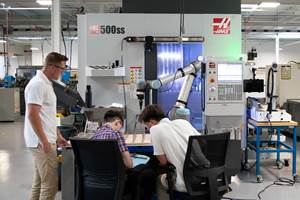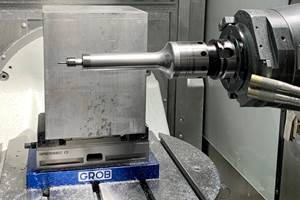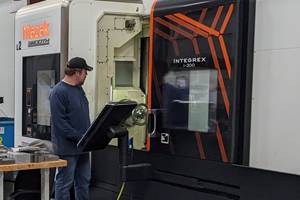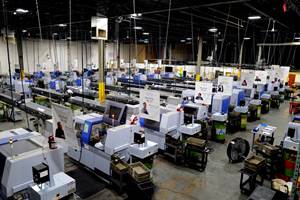The Right Mix Of Tooling And Machines Streamlines Process
When people talk about car performance, they often neglect to consider the influence of tires. Yet tires can impact fuel efficiency by as much as 10 percent. As manufacturers strive to improve tire performance, tread patterns tend to become more complicated.
Share





When people talk about car performance, they often neglect to consider the influence of tires. Yet tires can impact fuel efficiency by as much as 10 percent. As manufacturers strive to improve tire performance, tread patterns tend to become more complicated. In addition to the increasing complexity of tire-mold manufacturing, the industry’s current trend of outsourcing work can make it difficult for companies to remain competitive. Like others in the industry, Chris Sipe, president of Northeast Tire Mold, believes that investing in technology is the best way to deal with these challenges.
Northeast Tire Mold is a supplier to a number of OEM tire manufacturers. In 1976, Mr. Sipe’s father founded the Akron, Ohio shop with only an air compressor and a few small tools. Today, the company has 12 CNC machines devoted solely to tire-mold production. During a typical year, Northeast produces about 500 different molds for passenger cars, motorcycles, trucks, race cars and aircraft.
A couple of years ago, Mr. Sipe decided to invest in equipment that would enable the shop to move away from the typical casting process and machine treads directly into the molds. Machined molds are more precise than cast molds, which require clean-up and deburring, the company says. In addition, the machined molds are made in segments, each with eight to 12 treads and separate sidewalls. This type of design enables the company to re-machine problem components individually instead of recasting the entire mold. All in all, the new technique enables the company to get products to market faster than the casting process.
The company realized that it would need to invest in new equipment to make the move to direct machining. While attending EMO in Hanover, Germany, Mr. Snipe was intrigued by Alzmetall machines, which he felt were appropriate for the company’s applications. Before making an investment, however, he assembled a team consisting of Northeast employees and outside suppliers. The goal was to find ways to maximize the machine’s performance to address the shop’s needs.
One member of this team was Dave Ivory, technical specialist at Seco Tools Inc. “We showed Mr. Ivory the parts that we wanted to make so he could then analyze the machine—the horsepower, the spindle speed, the coolant pressure, and so on” Mr. Sipe explains. “This meant that we could put together a tooling package that would optimize the machine’s capabilities.”
Northeast says its faith in Seco was based on a long-standing 12-year relationship. “We started working with Seco when we added our first turning center,” says Mike Christie, Northeast vice president. “We continued to do business with the company because it offers great service. Seco stays by our side until the tool is up and running right. Consequently, it's the only carbide supplier we use for turning, milling or drilling.”
After the team completed its analysis, Northeast purchased a five-axis Alzmetall machine for cutting the treads. Later, the company invested in a four-axis Alzmetall machine to manufacture special containers that hold the mold pieces together for the curing process. Northeast says Seco’s custom tooling package helped achieve substantial productivity gains once the container work moved to the four-axis machine.
Each container is machined from a flame-cut sheet of 1020 steel that resembles a giant flat donut or washer. The containers are built to various sizes, some with ODs as large as 60 inches. First, the giant washers are roughed on a Defum three-axis turning center with an indexable Seco turning insert. “The flame-cut area leaves a jagged edge, so we have to turn the OD to a specific diameter,” Mr. Christie says. “Although this is tough on the tool, we machine to within 0.001 inch of finish dimensions.”
Next, the containers go to the Alzmetall four-axis for hole machining. A typical container top has so many holes and notches that it resembles “a piece of Swiss cheese,” Mr. Ivory says. The most time consuming part of the container-machining process is the creation of nine 3-inch-wide, 2-inch-deep pockets around the diameter of the workpiece. The previous machine took six hours to machine the holes with a 2-inch plunge mill. However, with its higher horsepower and Seco R217.20 high-feed milling tool, the new machine cut plunging time to 34 minutes. Within an hour, the company was running the tool at 42 hp and 7,200 rpm—its maximum capability.
According to Mr. Sipe, the research team’s advance planning played an important role in the company’s ability to get the new process up and running so quickly. “What amazes me is that many immediately recognize the value in investing in a new piece of equipment; however, they may fail to realize the significance of investing in quality tooling,” Mr. Sipe says. “Labor hours on the machine represent the biggest expense, so the actual tooling costs are not as crucial dollar-wise. Taking the labor hours out of the process is what counts.”
After the plunging process, the container undergoes a variety of drilling operations. First, the company runs Seco’s feedMax solid carbide drill at 7,500 rpm and 53 ipm to machine 72 holes to the required depth. Then, each 0.257-inch-diameter hole is thread-milled with Seco’s solid carbide Threadmaster.
Next, CrownLoc drills machine 46 holes ranging in size from 1/2 inch to 7/8 inch. The exchangeable crowns on the drill allow feeds as high as 21 ipm, thereby reducing machining costs. This process creates holes that are precise enough to finish with thread milling, the company says. Finally, four large holes are machined with indexable Perfomax drills, which can handle heavy metal removal.
“A critical issue in drilling that is often ignored by people is that you must have both sufficient coolant pressure and volume, and this is dependant upon the through-coolant holes in the drills,” Mr. Christie says. “As the holes get larger, the pressure needn’t be that high, but you still need the volume. We’re running at 800 psi and 12 gallons per minute, but this increases as the size of the hole in the drill gets smaller.”
The company says it can now produce four parts per day, compared with only one part using the old method. The biggest time savings involved the plunging operation, which Northeast says is 19 times faster. Mr. Sipe says the company emphasizes quality over quantity and aspires to machine difficult, extremely technical molds.
“Our investment in technology is key,” Mr. Sipe says. “We want the best machine tool and everything that goes with it—the foundation, the holders and the collets. We consider Seco a critical part of this technology team.”
Related Content
CNC Machine Shop Honored for Automation, Machine Monitoring
From cobots to machine monitoring, this Top Shop honoree shows that machining technology is about more than the machine tool.
Read MoreHigh RPM Spindles: 5 Advantages for 5-axis CNC Machines
Explore five crucial ways equipping 5-axis CNC machines with Air Turbine Spindles® can achieve the speeds necessary to overcome manufacturing challenges.
Read More5 Tips for Running a Profitable Aerospace Shop
Aerospace machining is a demanding and competitive sector of manufacturing, but this shop demonstrates five ways to find aerospace success.
Read MoreInside the Premium Machine Shop Making Fasteners
AMPG can’t help but take risks — its management doesn’t know how to run machines. But these risks have enabled it to become a runaway success in its market.
Read MoreRead Next
Registration Now Open for the Precision Machining Technology Show (PMTS) 2025
The precision machining industry’s premier event returns to Cleveland, OH, April 1-3.
Read MoreSetting Up the Building Blocks for a Digital Factory
Woodward Inc. spent over a year developing an API to connect machines to its digital factory. Caron Engineering’s MiConnect has cut most of this process while also granting the shop greater access to machine information.
Read More5 Rules of Thumb for Buying CNC Machine Tools
Use these tips to carefully plan your machine tool purchases and to avoid regretting your decision later.
Read More











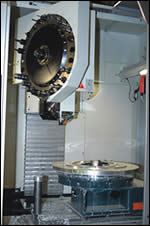
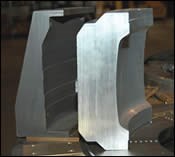
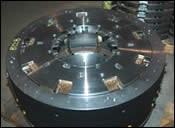










.jpg;maxWidth=300;quality=90)








